|
For more than two months now, the Nicaraguan government of one-time revolutionary Daniel Ortega and his wife Rosario Murillo has been brutalizing its own citizens. When the police shocked the country by firing upon and killing protesters who were rallying against a proposed social-security reform on 18 April, people from all sectors poured into the streets calling for accountability and democratic reforms. The police escalated the violence, then were withdrawn by the government only to reappear in plain clothes in support of paramilitary groups that continued the attacks on unarmed civilians.
On 7 June, our organization, The Development GAP, helped organize and appeared on Democracy Now with Nicaraguan colleagues to inform a U.S. and global audience about the situation in Nicaragua. Click on the 30-minute mark of the linked video below to watch the interview. Since then, the chaos and massacre have intensified, with the police and paramilitaries attacking the defenseless population in the streets and in their homes and attempting to beat and intimidate the people into submission while blaming the opposition for the violence. Last week that fiction was put to rest with the release by the Organization of American States of its human-rights mission report that condemned the Ortega government and called on it to cease the violence. National dialogue and international diplomacy, however, have so far failed to achieve this end. Sanctions that would isolate the government and circumscribe the travel and financial activities of its leaders may be required to force their departure. Meanwhile, the Nicaraguan people remain united in national strikes, the barricading of roads and other non-violent actions as they put their lives on the line to pressure for justice and a new politics. With the arrival of additional official human-rights delegations, the Nicaraguan government has begun to pinpoint its violence at the dismantling of roadblocks and taking protest leaders from their homes. We will continue to monitor the situation through our ongoing contact with friends around the country. The Crisis in Nicaragua - Democracy Now The following three postings are being shared to demonstrate that the economic policies of neoliberalism have had far-reaching consequences that made recent, dramatic political changes foreseeable and avoidable. Despite current nationalist sentiments, these globalizing policies are likely to continue and cause further economic and political crises.
This article was written 20 years ago. We have reposted it to show that today's political phenomenon was foreseeable and avoidable and to encourage the shaping of new economic policies that reduce, rather than exacerbate, economic inequalities and insecurities.
FERTILE GROUND FOR DEMAGOGUES By Steve Hellinger, Executive Director, The Development GAP 22 February 1996 To the shame of the Democratic Party, it has taken Pat Buchanan to place the economic concerns of the American people at the center of the nation's political debate. His message of economic populism resonates around the country, attracting both working-class Democrats and Perot followers, along with conservative Republicans, to his camp. But, in filling a void created by both parties' addiction to big money, Buchanan embodies a second message. It is a challenge to the liberal establishment to change economic course or take responsibility for far-reaching consequences that do not bode well for this country. Buchanan's success should not have surprised anyone with an ear to the ground and an eye on what is going on around the globe. He represents a growing phenomenon across the postindustrialized world: the ultra-nationalist politician who attracts a public following because of the failure of the major political parties to address the widespread economic insecurity and deep anxieties among the local population. His very success, and that of his counterparts in Europe, should be taken as a warning that ugly forces rooted in fear and prejudice are ready to be exploited if more enlightened policies that are responsive to the public interest are not adopted. Warning Ignored So far, that warning has been largely ignored. Right up to New Hampshire, the mainstream media did its best to paint Buchanan as a product of the religious right rather than as a spokesperson for millions of Americans who see their very livelihoods endangered. His political opponents in both parties, all of whom are beholden to corporate America, do not know how to respond to a candidate who dares to utter what was the worst-kept secret in the country: that unbridled "free trade" may be dangerous to the nation's health. They resort to simply calling him a protectionist and extol the virtues of export-led economic growth without looking at the other side of the equation, the side that drives down wages and threatens jobs. Today we have a situation in which both major parties support the movement of U.S. corporations to the Third World, where these highly capitalized companies are able to combine their superior managerial, technological and marketing skills with exploited, dirt-cheap labor to gain a grossly unfair advantage in peddling their wares back home. Furthermore, the U.S. Treasury has used the World Bank and the International Monetary Fund to demand of poor countries that they push down labor costs to attract investment and promote exports -- a subsidy to global corporations to the detriment of working people both here and abroad. In countering Buchanan and arguments against imports from subsidized foreign investors, his opponents have so far lacked the courage to do anything more than stroke the hand that feeds them. Ignoring one of the central causes for our economic ills, they have done little more so far than suggest to our major corporations that they might act more responsibly when it comes to laying off personnel while netting record profits. Indeed, liberals, horrified by the rapid rise of a presidential candidate so willing to stimulate resentment of minorities for political advantage, have no one else to blame but themselves. It is not simply that the Democratic Party has failed to respond to the deep-seated worries and anger of its traditional constituency of working-class Americans. Even worse, the policies of the Clinton Administration, like those of its two Republican predecessors, have exacerbated the situation, squeezing the poor, workers and the middle class at the bottom of the heap and leaving them to fight among themselves over the crumbs from the party being enjoyed by the ultra-rich in this country. Global Phenomenon What has been the reality across the Third World for more than a decade is now coming home to roost. Declining incomes, growing inequalities, job insecurity, drugs, crime -- these are the forces that are tearing at the social fabric of communities across the Northern hemisphere. Buchanan has latched onto NAFTA, the expansion of GATT and the creation of the World Trade Organization as symbols of a misguided economic strategy, but these "free trade" pacts are merely the logical extensions of what has been a major thrust of U.S. foreign policy during the Reagan, Bush and Clinton Administrations. In the name of globalization, competitiveness and efficiency, the U.S. government has been in the lead through the 1980s and '90s in opening dozens of Southern economies -- from Mexico to the Philippines -- to Northern investment. With the threat of a cut-off of international financing hanging over their heads, debt-laden governments have adopted programs of structural adjustment shaped by the World Bank and the IMF to create low-wage, deregulated economies attractive to U.S. and European corporations. The wholesale privatization of state enterprises and utilities and the liberalization of foreign-investment codes have generally been handled by Wall Street brokerage houses and law firms and their counterparts in Europe, generating vast new opportunities and benefits for their clients. NAFTA and GATT were necessary in order to remove the remaining barriers to the sale in the North of goods produced by Northern companies that have gone overseas to lower production costs. It doesn't take a genius to figure out what the consequences of these policies would be. Manufacturers have left the United States in droves to Mexico and points south, taking thousands of jobs with them. Simply the threat of leaving has enabled companies to pay their workers less. Those who have lost their jobs have been thrust into the service sector to survive, often on half their former wages and without any benefits to speak of. At the same time, the reduction in labor costs has increased corporate profits and generated the greatest disparity in incomes in decades. The situation in Europe is much the same. Indeed, in travelling across both continents one is struck by how similar peoples' insecurities, anxieties and frustrations are. Throughout Europe, unemployment levels are at post-war highs and the living standards of workers and much of the middle class, in general, are falling. Meanwhile, corporate profits and CEO salaries continue to rise. Europe, like the United States, is becoming two societies of rich and poor. Large segments of the population feel disenfranchised, unrepresented by the major political parties. Even Europe's socialist, social democratic and labor parties have forsaken their natural constituencies, promising, like their conservative and liberal counterparts, widespread economic benefits from corporate globalization, European unification and enhanced economic competitiveness -- benefits that have yet to materialize. Wrong Target The Washington political establishment, feeling under threat, is now on the attack against Buchanan rather than attending to the fundamental economic problems that he, and his European counterparts, are successfully exploiting. At a time when a public discourse on economic policy and the consequences of the present globalization process is badly needed, our major parties, media, think tanks and other influential institutions remain in a state of remarkable, collective denial. Even the destabilization of Russia and the collapse of the Mexican economy, with all their profoundly dire consequences for the United States, have failed to shake Washington's commitment to an economic orthodoxy that has succeeded only in further enriching a relatively small, elite group both at home and abroad. Putting our heads in the sand will not make the Pat Buchanans of the world, nor the economic issues and popular anxieties they are riding to popularity, go away. It will only hasten our already rapid and frightening slide down a slope all too familiar to us this century. It is a moment that demands responsible, enlightened and courageous leadership. Is the Democratic Party up to the challenge or must the American people look elsewhere for its champions? The Development GAP has, since its founding in 1976, worked with policymakers in the North and citizens' organizations in the South to ensure that decisions related to aid, trade and international economic policy are informed by Third World local-level realities.
|
Author
Steve Hellinger, Executive Director of The Development GAP ArchivesCategories |
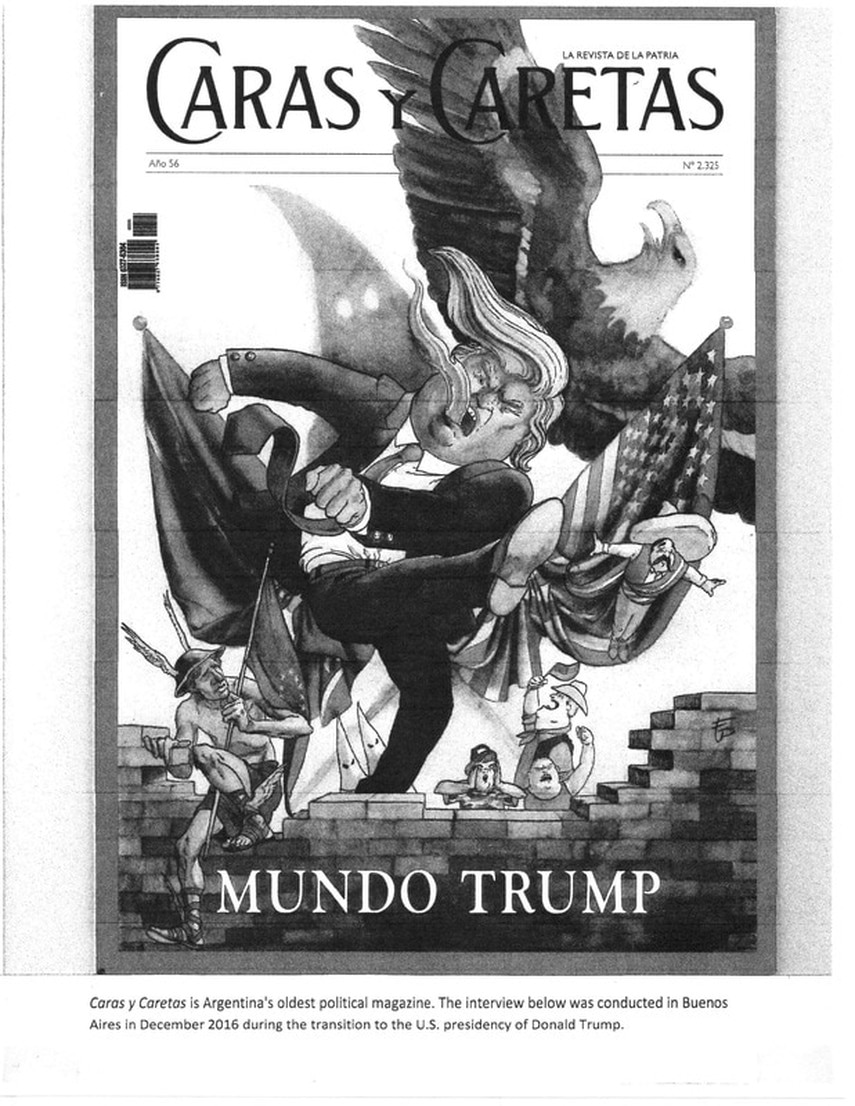
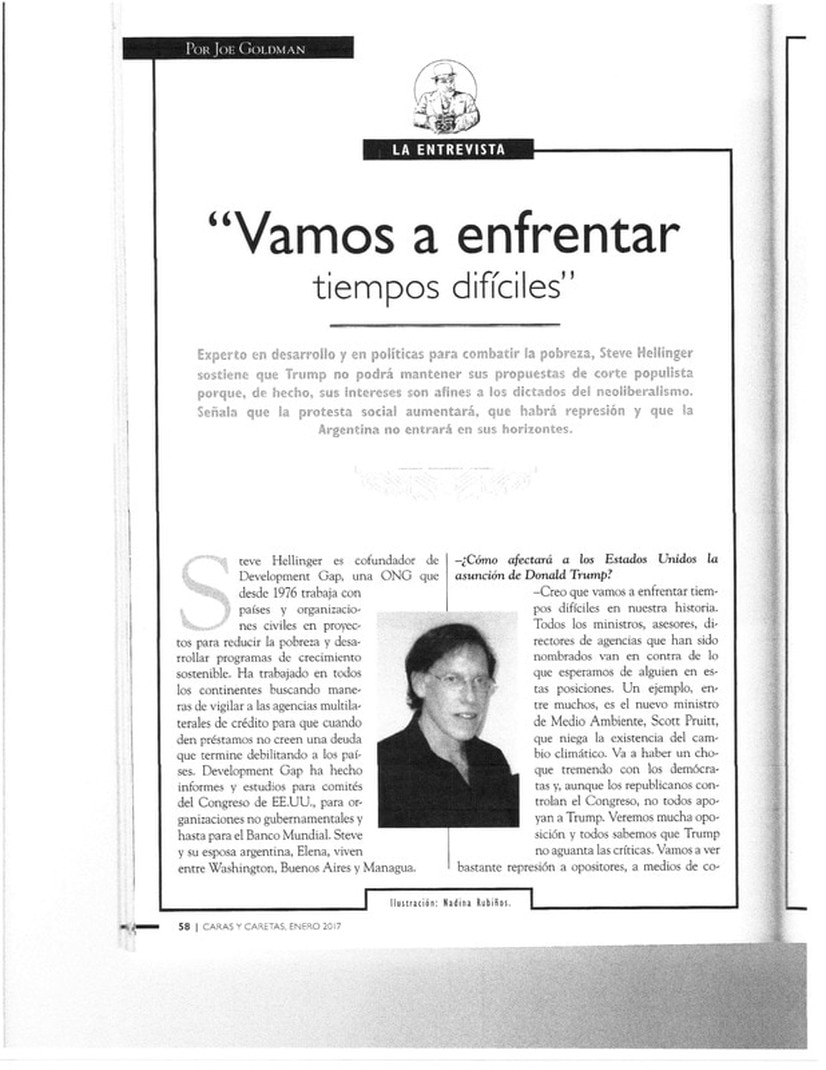
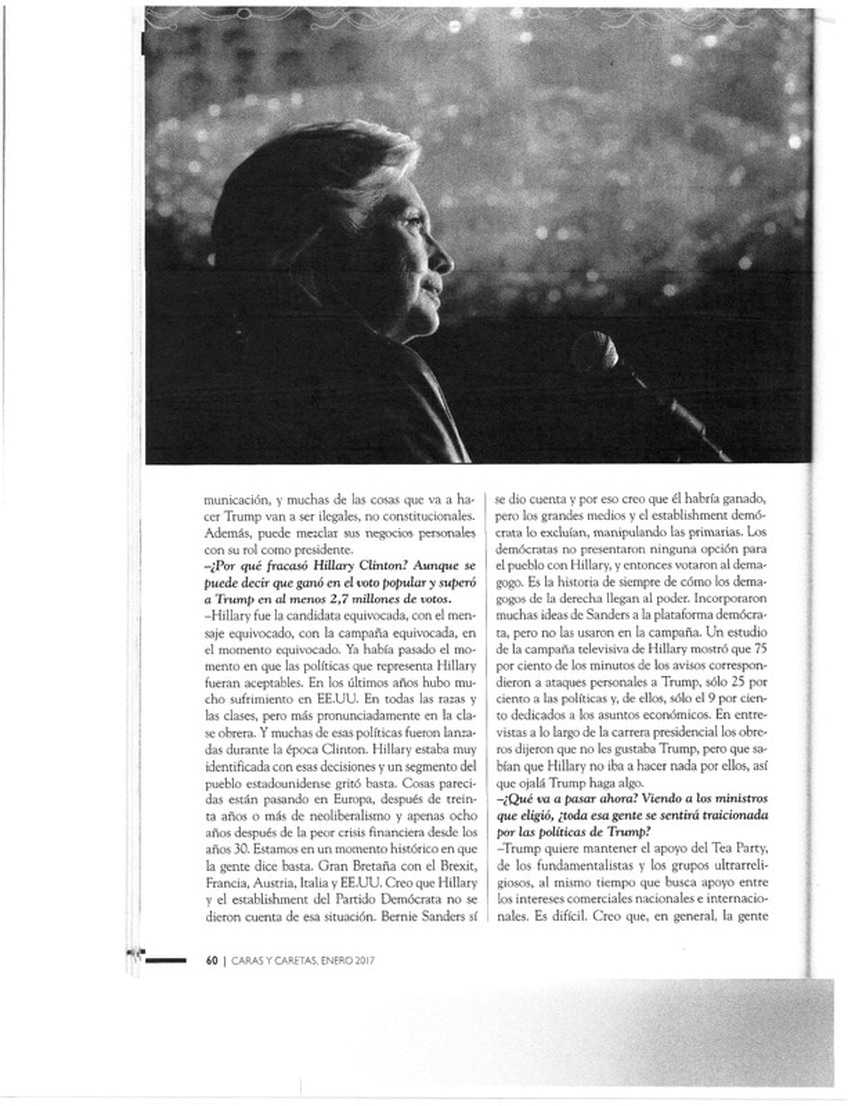
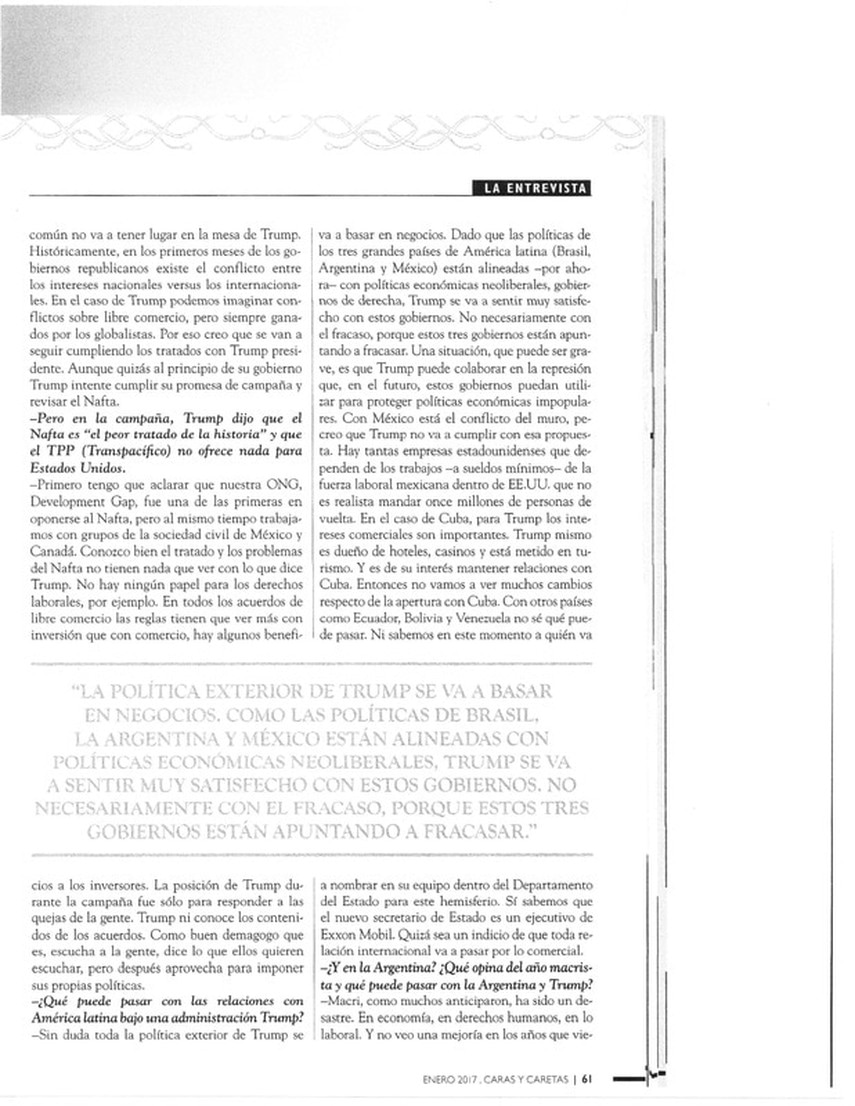
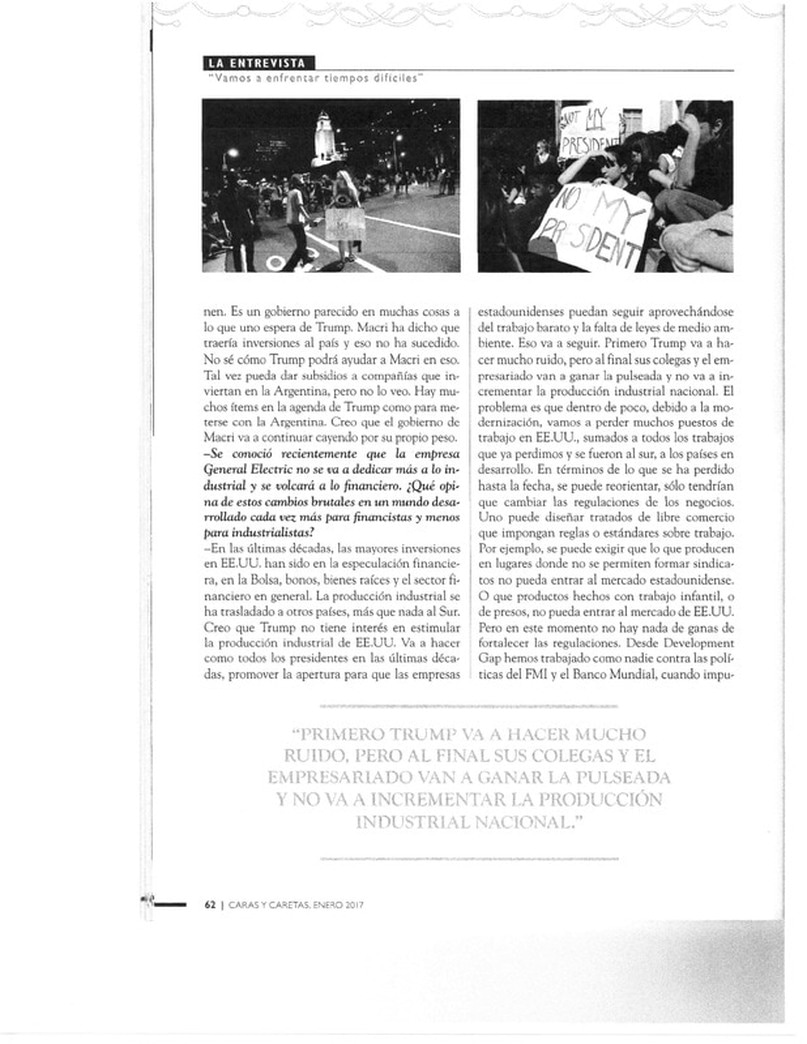
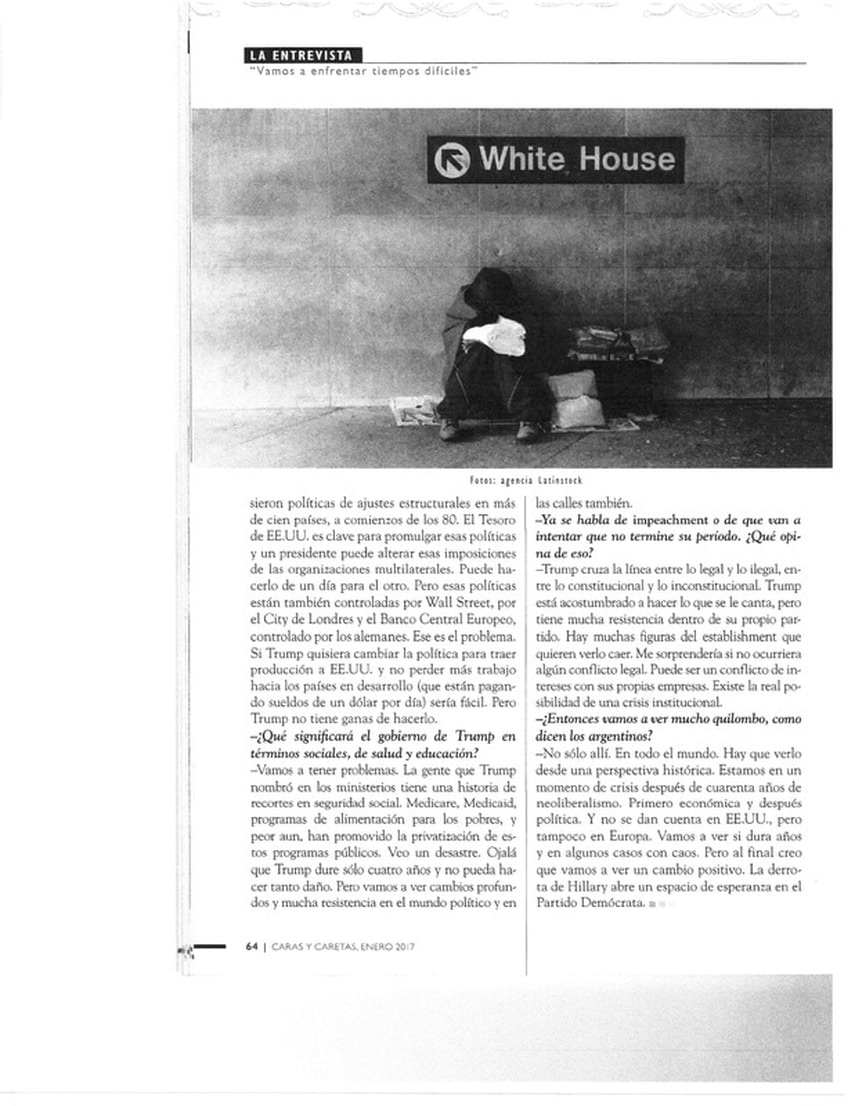
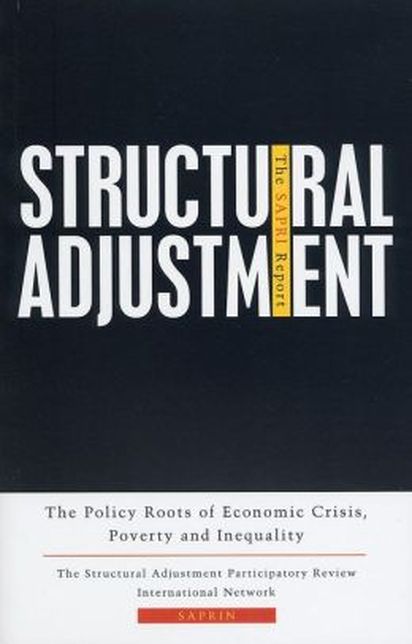
 RSS Feed
RSS Feed
